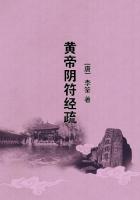He was, indeed, while President, violently denounced by the opposition as a tyrant and a usurper, for having gone beyond his constitutional powers in authorizing or permitting the temporary suppression of newspapers, and in wantonly suspending the writ of habeas corpus and resorting to arbitrary arrests. Nobody should be blamed who, when such things are done, in good faith and from patriotic motives protests against them. In a republic, arbitrary stretches of power, even when demanded by necessity, should never be permitted to pass without a protest on the one hand, and without an apology on the other. It is well they did not so pass during our civil war. That arbitrary measures were resorted to is true. That they were resorted to most sparingly, and only when the government thought them absolutely required by the safety of the republic, will now hardly be denied. But certain it is that the history of the world does not furnish a single example of a government passing through so tremendous a crisis as our civil war was with so small a record of arbitrary acts, and so little interference with the ordinary course of law outside the field of military operations. No American President ever wielded such power as that which was thrust into Lincoln's hands. It is to be hoped that no American President ever will have to be entrusted with such power again. But no man was ever entrusted with it to whom its seductions were less dangerous than they proved to be to Abraham Lincoln. With scrupulous care he endeavored, even under the most trying circumstances, to remain strictly within the constitutional limitations of his authority; and whenever the boundary became indistinct, or when the dangers of the situation forced him to cross it, he was equally careful to mark his acts as exceptional measures, justifiable only by the imperative necessities of the civil war, so that they might not pass into history as precedents for similar acts in time of peace. It is an unquestionable fact that during the reconstruction period which followed the war, more things were done capable of serving as dangerous precedents than during the war itself. Thus it may truly be said of him not only that under his guidance the republic was saved from disruption and the country was purified of the blot of slavery, but that, during the stormiest and most perilous crisis in our history, he so conducted the government and so wielded his almost dictatorial power as to leave essentially intact our free institutions in all things that concern the rights and liberties of the citizens. He understood well the nature of the problem. In his first message to Congress he defined it in admirably pointed language: "Must a government be of necessity too strong for the liberties of its own people, or too weak to maintain its own existence? Is there in all republics this inherent weakness?" This question he answered in the name of the great American republic, as no man could have answered it better, with a triumphant "No...."
It has been said that Abraham Lincoln died at the right moment for his fame. However that may be, he had, at the time of his death, certainly not exhausted his usefulness to his country. He was probably the only man who could have guided the nation through the perplexities of the reconstruction period in such a manner as to prevent in the work of peace the revival of the passions of the war. He would indeed not have escaped serious controversy as to details of policy; but he could have weathered it far better than any other statesman of his time, for his prestige with the active politicians had been immensely strengthened by his triumphant re-election; and, what is more important, he would have been supported by the confidence of the victorious Northern people that he would do all to secure the safety of the Union and the rights of the emancipated negro, and at the same time by the confidence of the defeated Southern people that nothing would be done by him from motives of vindictiveness, or of unreasoning fanaticism, or of a selfish party spirit. "With malice toward none, with charity for all," the foremost of the victors would have personified in himself the genius of reconciliation.
He might have rendered the country a great service in another direction. A few days after the fall of Richmond, he pointed out to a friend the crowd of office-seekers besieging his door.
"Look at that," said he. " Now we have conquered the rebellion, but here you see something that may become more dangerous to this republic than the rebellion itself." It is true, Lincoln as President did not profess what we now call civil service reform principles. He used the patronage of the government in many cases avowedly to reward party work, in many others to form combinations and to produce political effects advantageous to the Union cause, and in still others simply to put the right man into the right place. But in his endeavors to strengthen the Union cause, and in his search for able and useful men for public duties, he frequently went beyond the limits of his party, and gradually accustomed himself to the thought that, while party service had its value, considerations of the public interest were, as to appointments to office, of far greater consequence.
Moreover, there had been such a mingling of different political elements in support of the Union during the civil war that Lincoln, standing at the head of that temporarily united motley mass, hardly felt himself, in the narrow sense of the term, a party man. And as he became strongly impressed with the dangers brought upon the republic by the use of public offices as party spoils, it is by no means improbable that, had he survived the all-absorbing crisis and found time to turn to other objects, one of the most important reforms of later days would have been pioneered by his powerful authority. This was not to be. But the measure of his achievements was full enough for immortality.













